Mozambique: Liberation stalwart Marina Pachinuapa receives Doctor Honoris Causa - Watch
Analysis: Head of list issues; 39% registration but problems persist – By Jseph Hanlon
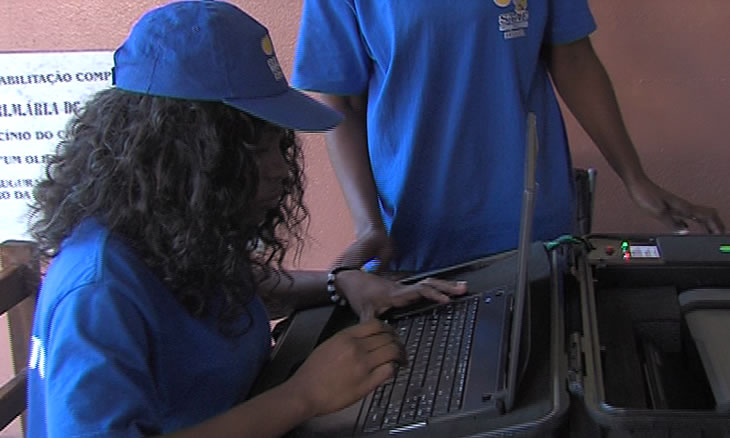
File photo: O País
Questions about head of list:
- Majority = more than 1/2 or largest?
- By-elections? 2nd rounds? Which list?
The proposal that governors, district administrators, and mayors should be elected by a “head of list” system has turned out to not be simple and is posing conundrums for parliamentarians and constitutional lawyers.
The negotiations between Renamo head Afonso Dhlakama and President Filipe Nyusi led to an agreement that the top officials – provincial governors, district administrators and mayors – would be named by the party that received a “majority” of votes in the election of the respective assembly (local parliament). This led to public criticism against giving so much power to party officials and objections from lawyers, because the constitution specifies “direct” election of mayors and other top officials. Mozambique uses a party list system to elect the national parliament and lower level assemblies, so the proposal was revised so that the head of the list with a “majority” should become the senior person – governor, administrator, mayor.
The constitution (article 135) says that “universal, direct, equal and periodic suffrage by personal and secret ballot shall be the general rule for the designation of senior officials [‘titulares”] of elected national, provincial and local organs.”
“Direct” means that the people with enough votes are automatically named as presidents or parliament members, without intervention of any intermediary. Party nomination would be such an intervention, whereas directly appointing the head of a list would could be seen as direct election. Angola has a head of list system and ballot papers have, in one block, the name and symbol of the party and the name and photo of the head of the list.
But four issues remain to be solved: how is majority defined, and of what; which list; and can there be second rounds and by-elections?
Majority?
The word “majority’ is often used in two different senses, a “simple majority” or “absolute majority” is 50% of valid votes plus 1, while a “relative majority” is which person or list gains the most votes. The national president is elected by a simple majority, and if no one gains 50% of the vote, there is a second round between the two with most votes. It is possible to have parliaments in which no party has a simple majority, which forces a coalition or some other arrangement. The other question is whether we count votes or assembly seats. So there are four choices: the mayor is the head of the list with a simple majority (of votes or assembly seats) or by a relative majority (of votes or assembly seats). Choosing a relative majority of assembly seats could lead to one party having the mayor, but two other parties forming a coalition to have a simple majority in the assembly and opposing the mayor. If the decision is to choose the head of the list of the party with the largest number of seats, what happens if two parties have the same number of seats, as in the Manica provincial assembly?
2nd round?
What happens if we opt for simple majority but no party gains a simple majority? In 2014 in 6 of the 11 provinces (Niassa, Nampula, Zambézia, Tete, Manica, Sofala) no party gained a simple majority of votes for national parliament nor a simple majority of parliament seats from the province. That forces a choice between 1. a relative majority with the possibility of a governor or mayor facing an opposition assembly, 2. allowing some sort of second round between the two parties or two heads of lists with the most votes, or 3. forcing parties which together have a majority of seats or votes to negotiate a formal coalition.
The third case, a formal post-election coalition, would require a lot of debate, in part because it could be seen as an indirect election. Probably the head of the list of the largest party in the coalition would become governor or mayor. This would have the advantage of ensuring the mayor and municipal assembly were aligned. In the Nampula by-election second round, Renamo and MDM agreed a coalition, and Frelimo is said to be changing its rules to more clearly allow coalitions – which suggests Mozambican parties are realising the coalitions will be inevitable and provincial and lower levels.
Which list?
For municipal assembly elections, the electoral unit is the entire city, so there is only one list and only one head of list. But for provincial assembly, the electoral unit is the district, there are different lists in each district, and candidates must be registered in the district to assure local representation. But in a head of list system, the question is: Which list? There seem to be three options on the table: 1) abolish district lists and have one provincial list, 2) specify the head of the list of the largest district or provincial capital, or 3) have two sets of lists, one by district as now, and a new second province-wide list with perhaps only 5 candidates or with one candidate from each district and the head would become governor.
By-election?
What happens if the elected major or governor dies, resigns or is forced to retire? This has happened six times in municipalities. Does the second person on the list automatically become mayor or governor? Does this count as direct election, even though the person’s name and picture were not on the ballot paper?
Many questions and much negotiation remain, and time before the October municipal elections is short. jh
39% registration at halfway point
Half way through the 60-day registration period only 38.61% of potential voters have been registered. In Niassa the figure is only 28% with Mandimba district at only 15%. Maputo province is low with only 32% and particularly low registration in Matola, Mozambique’s biggest city, of only 27%. Only three provinces are over 45%. (The full provincial table in the attached pdf.)
Variable registration rates point to problems
Registration rates are rising, from 92,520 the first week to 120,696 last week, but the huge variation points to problems in some places. STAE spokesperson Cláudio Langa at a press conference today confirmed reports from our correspondents in the field, noting that some registration brigade members had been dismissed for theft of toner and fuel, and for lack of punctuality. He also confirmed problems with electricity supplies. CNE and STAE teams went out to various parts of Mozambique last week to try resolve problems.
Electricity problems
Our correspondents report electricity problems slowing registration, and this was confirmed by Langa. This ranges from old batteries not holding a charge for the entire day to solar panels not being able to recharge batteries due to rain and cloud. Langa admitted to a training gap – staff plug in the solar panel only when the battery runs down, and they are being told to keep it plugged in all day. Batteries need to support laptop computers, printers, fingerprint readers and cameras.
Langa praised supportive citizens who were plugging in registration posts to their household electricity, but then admitted the truth of our correspondents’ reports that the state electricity company Eletricidade de Moçambique (EDM) opposed this and threatened to cut off households that made such “clandestine” connections.
Our correspondents also report thefts of fuel from generators, sometimes replacing it with water, which damaged the generators.
Old equipment
Because of Mozambique’s economic crisis, the registration is being done with equipment from the 2013/14 registration, which needs regular repair from STAE technicians. At Escola Primária 1° de Maio in Matola on 25 March, the printer was out of action for the day. Brigade supervisor Denise Faife said 91 people were registered but were told to come back another day to collect their cards., There were similar problems elsewhere, for example in Mutarara, Tete.
Slow processing
Langa claimed that the average time to register a voter is three-and-a-half minutes, but our correspondents found that in many places it was much longer. Two reasons were cited. Weak training which means brigade members still do not operate the equipment well. And there is lack of attention to the job with brigade members talking on their mobile telephones instead of registering people, or simply being absent.
Also, it takes longer to register people who have no documents and are being identified by another registered voter. Signing cards and taking fingerprints also takes longer than planned in some places.
Slow registration was reported by correspondents at registration posts including various schools in Maputo, Xai-Xai, and Massinga.
Correspondents also report brigades not keeping to the schedule, which should be 8 am to 4 pm. But in Costa do Sol, Maputo, posts were closing early, and in Milange, Zambézia, posts were opening late.
Stepped up civic education
Langa said that at the start STAE spread its resources equally across all provinces, but for the second month it was concentrating its people in areas like Niassa with the lowest registration. Our correspondent in Maputo noted that at first civic education teams were invisible, but by the end of March when the low turnout was obvious more posters and publicity became apparent.
Importing voters?
Voters are supposed to register at the post (usually a school) nearest where they live, but opposition parties continue to complain about people from outside the municipalities registering to vote inside the municipal boundaries. O Pais (10 April) reported that two people were arrested for presenting false identifies to try to register in Beira; both were stopped by party delegates when they were unable to identify where they lived. Frelimo has delegates at nearly all registration posts and Renamo at most, with MDM having fewer.
Our correspondents reported other strange incidents. In Namuinho, Quelimane on 14 April local residents and Renamo identified staff from the nearby hospital attempting to register as a group. This was rejected and they were told to register near their homes.
In Cajueiro, Infulene, Matola, nine people were caught making false declarations of their residence.
Also in Matola, at Escola Primária 1o de Maio, 20 people were stopped from registering and told to register near where they lived.
By Joseph Hanlon



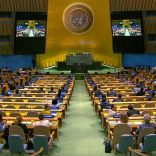
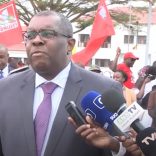

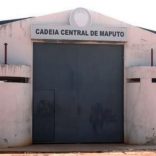
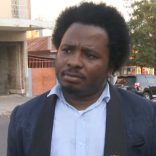





Leave a Reply
Be the First to Comment!
You must be logged in to post a comment.
You must be logged in to post a comment.